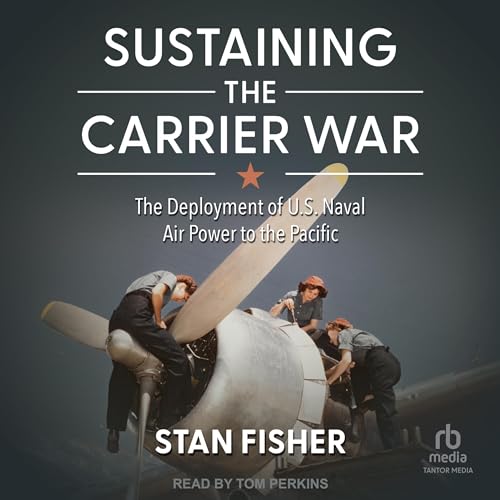
Sustaining the Carrier War
The Deployment of U.S. Naval Air Power to the Pacific
カートのアイテムが多すぎます
カートに追加できませんでした。
ウィッシュリストに追加できませんでした。
ほしい物リストの削除に失敗しました。
ポッドキャストのフォローに失敗しました
ポッドキャストのフォロー解除に失敗しました
Audibleプレミアムプラン30日間無料体験
¥2,600 で購入
-
ナレーター:
-
Tom Perkins
-
著者:
-
Stan Fisher
このコンテンツについて
The ability of the US Navy to fight and win a protracted war in the Pacific was not solely the result of technology, tactics, or leadership.
Naval aviation maintenance played a major role in the US victory over Japan in WWII.
The naval war against Japan did not achieve sustained success until enough aircraft technicians were available to support the high tempo of aviation operations that fast carrier task force doctrine demanded.
When the US realized war was imminent and ordered a drastic increase in the size of its aviation fleet, the Navy was forced to develop new policies in maintenance, supply, and technical training.
Not only did a shortage of technicians plague the Navy, but the scarcity of aviation supply and repair facilities in the Pacific soon caused panic in Washington.
While the surface Navy's modernization of at-sea replenishment was beneficial, it didn't solve the problems of sustaining wartime aircraft readiness levels sufficient to winning a naval air war.
Fisher outlines the drastic institutional changes that accompanied an increase in aviation maintenance personnel, the complete restructuring of the naval aviation technical educational system, and the development of a highly skilled labor force.
This book is the first comprehensive study on the importance of aircraft maintenance and the aircraft technician in the age of the aircraft carrier.
©2023 Stanford E. Fisher III (P)2024 Tantor

